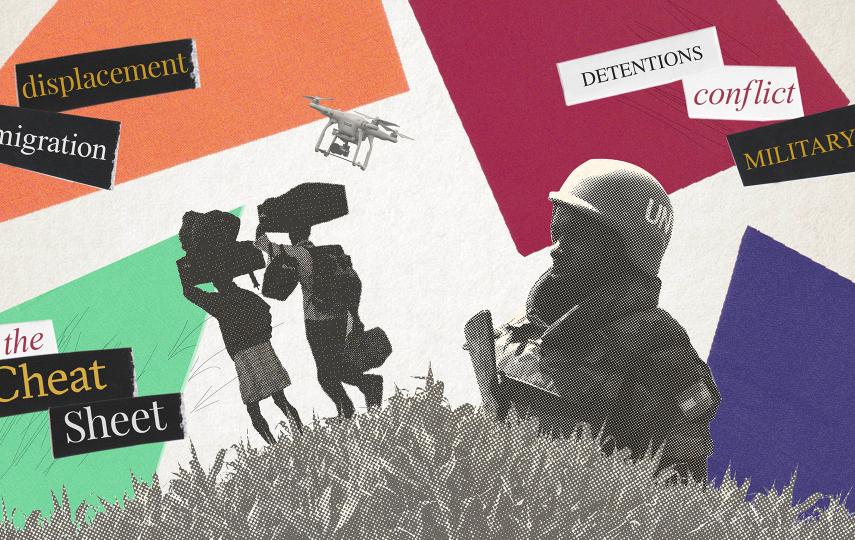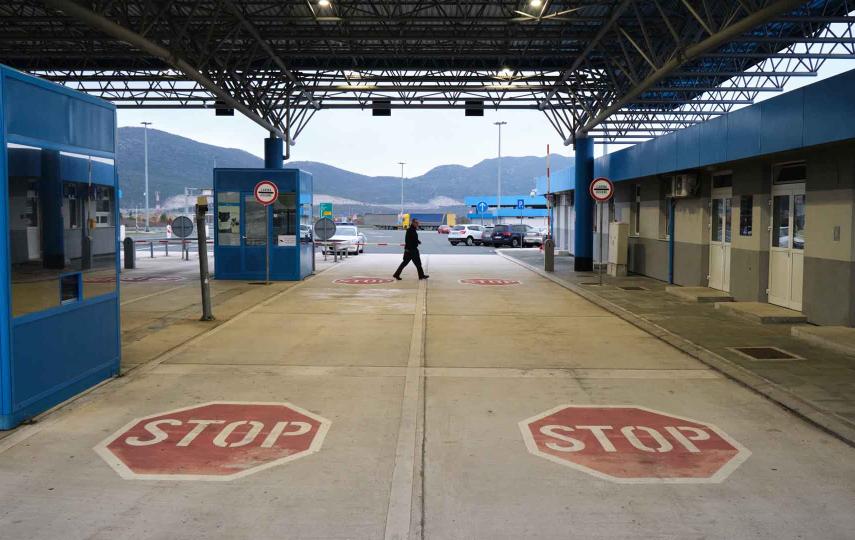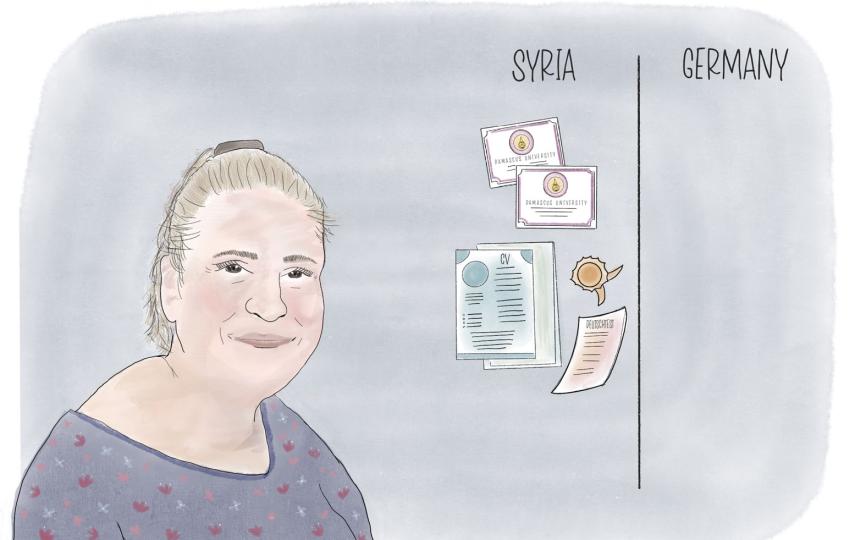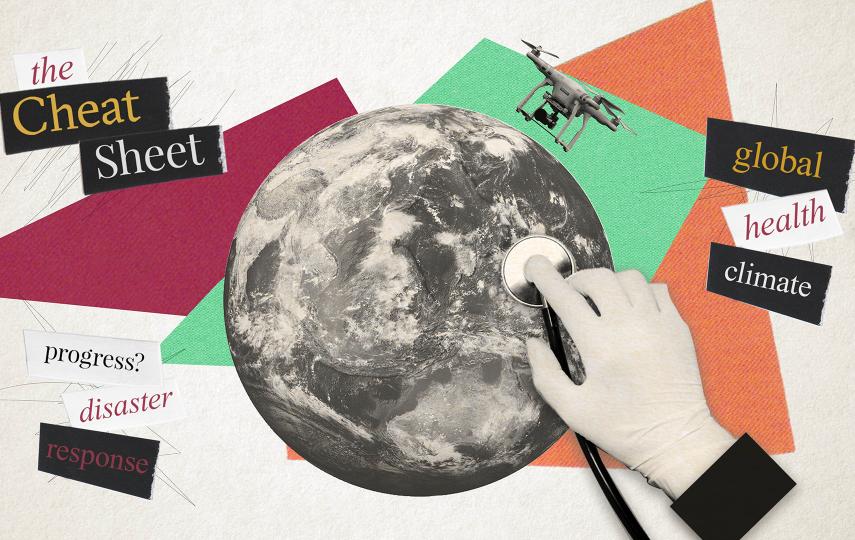Five to read:
British aid, not arms
While Yemen’s humanitarian disaster worsens by the day, Oxfam has accused the UK government of exacerbating the civil war by selling arms to Saudi Arabia. The charity’s findings state that Britain has granted the Gulf Kingdom nearly 40 export licenses for military goods since the war began, potentially breaking international law if Saudi-led coalition forces used such weapons in airstrikes that ended up killing civilians. Oxfam Chief Executive Mark Goldring sums up the apparent hypocrisy. “On the one hand, the Department for International Development is funding efforts to help civilians caught up in the conflict,” he writes. “While on the other, the government is fuelling the conflict that is causing unbearable human suffering.”
Ostracised, sacked, arrested
A 70th birthday is often approached with some trepidation. So it is for the UN, which reaches the milestone next month. There are growing concerns over corruption and malpractice at the heart of the organisation as well as lingering allegations of sexual abuse by its peacekeeping forces. What happens to staff who draw attention to such failures? In this exposé, the Guardian reports on the fate of whistleblowers at the UN, including the striking case of Aicha Elbasri. A former spokeswoman in Darfur, she saw first-hand how atrocities committed against Darfuris were being ignored by UN operations. “I felt I could no longer work with the UN while I had that on my conscience,” she says. “I had basically either to keep quiet or leave.”
The story of a downed drone
The use of surveillance drones by the UN to save lives in eastern Congo comes under fire in this special report from Foreign Policy’s Siobhan O’Grady. Deployed as part of peacekeeping missions, unmanned aircraft “track rebel movements, monitor road conditions, and provide intelligence” to help protect Congolese civilians. But when one crashed in the city of Goma, it did more harm than good to the 55-year-old widow whose crops were lost in the debris-littered field. O’Grady says a lack of funding, limited operations and adverse weather conditions have diminished the drone programme’s capacity to function.
‘Syria is emptying’
“Analysts say it was inevitable it would come to this, that Syrians would eventually tire of waiting for a war of such exceptional brutality to end.” The great exodus from a country torn apart by conflict should not have come as a surprise, writes Liz Sly in a timely long-read for the Washington Post. Mixing on-the-ground reportage and geopolitical analysis, Sly paints a grim picture of what we might expect in the region – endless battles, no clear victories and only one loser: the Syrian people. She also makes the important point that Syria’s divisive politics no longer matters to those fleeing. “We don’t know who is winning, and they are all just killing each other,” one refugee says.
$14.50 for a new life
Along with their Syrian counterparts, Afghan refugees are leaving their homeland in vast numbers. Their stories, however, are told far less often. This piece by the New York Times is therefore very welcome and offers rare insight into the first leg of the treacherous journey from Kabul to Germany. Many must first pay the equivalent of $14.50 to secure a seat on a bus to Nimruz, which rests on the border with Iran. Those who make it across to Iran, and then Turkey and beyond are the lucky few. Many are shot by Iranian border police, or die while crossing the desert. Yet this does not deter other would-be refugees: “I believe Europe will treat us as humans,” says Rehanullah, an 18-year-old Afghan. Here, “I have nothing in my hand – nothing.”
One to listen to:
How cash transfers can transform aid
Refugees are not always on the move, and those stuck in camps and informal communities still desperately need humanitarian aid. How can this be better delivered? The latest podcast from the Center for Global Development (CGD) comes in light of new recommendations put forward by a panel on how cash transfers can drastically reform the traditional aid industry. Rajesh Mirchandani is joined by the panel’s chair, Owen Barder, who says giving cash is “more efficient, more transparent, more accountable” and that “it should be the central part of every humanitarian appeal”, except in a few cases. Degan Ali, executive director of African NGO Adeso talks about the positive impact of largescale cash transfers in Somalia and says it is important to stamp out the “paternalistic idea of poor people… ‘spending [money] on the wrong thing.’”
Coming up:
Ambition to action
How will the UN’s Sustainable Development Goals (SDGs) drive the next 15 years of global change? This debate hosted by the Overseas Development Institute (ODI) and CEPEI brings together experts from around the world to outline projections for each new target of international development. Chaired by Liz Ford, deputy editor of the Guardian’s global development desk, speakers include Simón Gaviria, director general of Colombia’s national planning department, Amina Mohammed, the UN secretary-general's special advisor on post-2015 development, Aggrey Tisa Sabuni, presidential advisor on economic affairs in South Sudan, Claire Melamed, director of poverty and inequality at the ODI, and Danny Sriskandarajah, CEO of CIVICUS.
From IRIN:
Disabled in war, forgotten in peace
In 2009, Velu Arumugam lost a limb after Sri Lankan government forces shelled his village. He was permanently injured but has yet to receive financial, medical or legal assistance. Arumugam’s case is not unusual. Tens of thousands of Sri Lankans left disabled during the decades-long civil war have yet to see justice or be compensated. A UN report has just recommended that a war crimes tribunal hears their cases, and the Sri Lankan government recently announced that it would set up a truth and reconciliation commission. Things appear to be moving in the right direction.
dv/ag



